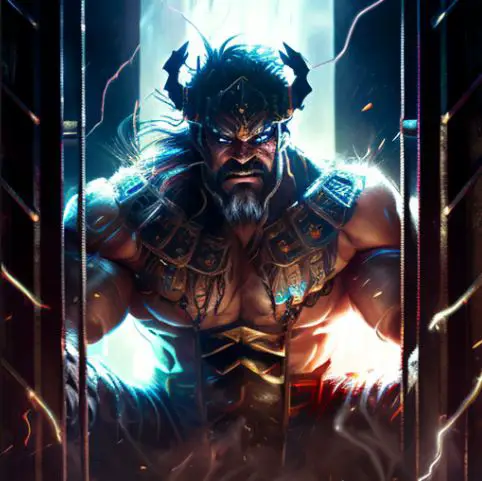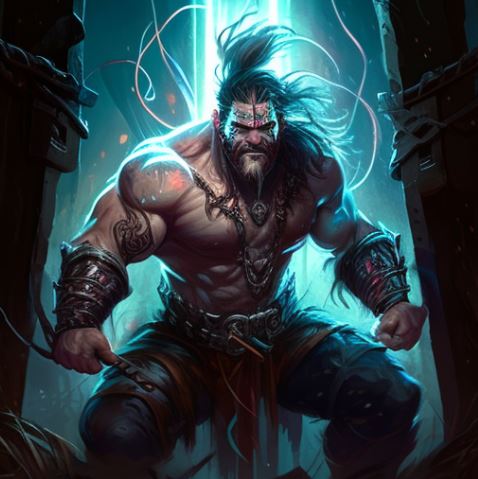
Introduction
Attention, League of Legends players! Are you tired of the negativity and unfair play that can ruin your gaming experience? Or are you worried about unintentionally crossing the line and getting banned yourself? Fear not, summoner, because as an expert in the world of LoL, I’ve got you covered. In this comprehensive guide, I’ll be revealing the top reasons players get banned in League of Legends, and how you can avoid falling into the same traps. This is the ultimate inside scoop you’ve been waiting for, so buckle up and prepare to level up your knowledge. By the end of this article, you’ll be equipped with the know-how to keep your account safe and contribute to a more enjoyable gaming environment for everyone. Ready to dive in? Let’s get started!
1. Cheating
As a seasoned expert in the world of online gaming and esports, I can confidently assert that cheating is among the most serious offenses in any game, including the immensely popular League of Legends. In order to emphasize the gravity of these offenses, let’s take an in-depth look into specific forms of cheating that can lead to bans, along with real-life examples of players who faced the repercussions.
1.1 Scripting
Scripting is the practice of employing software to automate in-game actions, such as executing skill shots with perfect accuracy or dodging enemy abilities with inhuman reaction times. This provides players an unfair advantage over their opponents, disrupting the competitive balance that the game aims to maintain. In one infamous case, a high-ranking player with aspirations of joining the professional scene was caught using scripts during a high-stakes match. Upon being discovered, the player received a permanent ban, which not only halted their progress in the game but also tarnished their reputation within the LoL community, effectively ending their competitive career.
To combat scripting, Riot Games has implemented sophisticated detection systems that can identify and ban players using these unauthorized programs. The company actively updates these systems to stay one step ahead of cheaters who continually develop new ways to exploit the game.
1.2 Hacking
Hacking encompasses the manipulation of the game’s code or server infrastructure to gain an unfair advantage, disrupt other players’ gameplay, or compromise account security. Hacking activities can take various forms, such as map hacking (revealing the entire map), speed hacking (increasing a character’s movement speed beyond intended limits), or item hacking (illegitimately acquiring powerful items).
In a widely publicized incident, a group of hackers exploited a vulnerability in the game’s server infrastructure, granting them access to other players’ accounts and allowing them to steal valuable in-game items and currency. The hackers also used their unauthorized access to sabotage high-profile matches, causing significant disruption within the community. Upon investigation, Riot Games identified and banned the hackers while working diligently to restore the affected players’ accounts and recover their stolen items.
1.3 Third-Party Applications
The use of unauthorized third-party applications, such as those that track enemy cooldowns, display other players’ statistics, or provide real-time information on enemy positions, is also against the game’s terms of service and can result in a ban. In one notable case, a popular streamer was found to be using a third-party application that provided real-time information on the enemy team’s jungler, granting them an unfair advantage during matches. The discovery led to the streamer’s account being banned, and they faced significant backlash from the community, including losing sponsorships and followers.
Riot Games takes the use of unauthorized third-party applications seriously and continually monitors the game for signs of such software. The company collaborates with the community by encouraging players to report suspicious behavior and actively pursues legal action against developers of these illicit applications when necessary.
These real-life examples underscore the importance of playing fair and adhering to the game’s terms of service. Remember, cheating not only disrupts the experience for other players but can also lead to severe consequences for the offender, including loss of account access, damaged reputation, and potential legal ramifications.
2. Toxic Behavior


Toxic behavior is another major reason for bans in League of Legends. Games like LoL are meant to provide a fun and engaging experience, but toxic behavior can quickly turn an enjoyable game into a nightmare for players. Let’s explore the different facets of toxic behavior, using real-life examples, including the notorious case of Tyler1, to highlight the consequences of engaging in such conduct.
2.1 Harassment
Harassment can take many forms, and it negatively impacts the game experience for other players. The most common type of harassment is verbal abuse, which can lead to severe consequences for the offending player.
2.1.1 Verbal Abuse
Insulting, threatening, or belittling other players is considered verbal abuse and can result in a ban. Tyler1, a well-known streamer, experienced a ban due to his toxic behavior in games. His aggressive and insulting language, often directed at teammates, led to a negative environment in the games he participated in. After numerous complaints from other players and an accumulation of reports, Riot Games issued an indefinite ban on Tyler1’s account. This high-profile ban served as a wake-up call to many players and demonstrated the company’s commitment to addressing toxic behavior.
2.2 Hate Speech
Hate speech, including racial, sexual, or other discriminatory slurs, is not tolerated in League of Legends and can lead to a ban. In one example, a professional player used hate speech during a live-streamed match, which not only resulted in a ban from Riot Games but also led to their suspension from the professional team they were part of. This incident not only had a lasting impact on the player’s career but also served as a stark reminder to the entire community that hate speech has no place in the game.
2.3 Feeding/Trolling
Intentionally playing poorly, feeding the enemy team kills, or trolling your teammates can all result in a ban. In the case of Tyler1, along with his verbal abuse, he was also known for intentionally feeding the enemy team and trolling in games. This behavior was detrimental to his teammates’ experience and undermined the competitive spirit of the game. After his ban, Tyler1 eventually reformed his behavior and was allowed to return to the game. Since then, he has become an advocate for positive behavior within the LoL community.
In conclusion, toxic behavior not only harms the gaming experience for other players but can also lead to serious consequences for the offending individual, ranging from temporary suspensions to permanent bans. These examples, including Tyler1’s infamous case, demonstrate the importance of fostering a positive and respectful gaming environment. By avoiding toxic behavior, players can contribute to a more enjoyable experience for everyone involved.
3. Account Sharing
Account sharing, which includes allowing someone else to use your account or using someone else’s account, is against the game’s terms of service and can result in a ban. Account sharing can lead to several issues, such as compromised account security, uneven matchmaking, and exposure to potential cheating or toxic behavior from the shared account.
In one case, a high-ranking player allowed a friend to use their account, and the friend subsequently engaged in toxic behavior, resulting in the account owner receiving a ban. This incident highlights the importance of maintaining sole control over your account and adhering to Riot Games’ terms of service.
4. Abusing Bugs or Exploits
Taking advantage of bugs or exploits in the game to gain an unfair advantage is against the game’s policies and can lead to a ban. Bugs are unintended flaws or errors in the game’s code, while exploits are deliberate manipulations of these flaws to gain an advantage over other players. Riot Games actively investigates and resolves bugs and exploits, and players are encouraged to report any issues they encounter.
In one instance, a player discovered a bug that allowed them to teleport across the map instantly, giving them a significant advantage over other players. Instead of reporting the issue, the player abused the exploit in multiple games, which led to a ban once the abuse was discovered.
5. Elo Boosting
Elo boosting, the act of paying someone else to play on your account to increase your rank, is strictly prohibited and can result in a ban. Elo boosting not only violates the game’s terms of service but also undermines the integrity of the ranking system and creates an unfair environment for other players.
There have been numerous cases of professional players and high-ranking individuals offering boosting services, often for financial gain. In one high-profile case, a professional player was caught boosting multiple accounts and received a lengthy ban, which led to their removal from their team and a significant impact on their career.
6. Leaving or AFK
Leaving a game or going AFK (away from keyboard) for an extended period of time negatively affects your team and the overall game experience. Repeated offenses can lead to a ban. Players are expected to commit to the full duration of a match and actively participate in the game. Abandoning a game or going AFK places an unfair burden on your teammates and disrupts the competitive balance.
Riot Games utilizes an automated system called the LeaverBuster to detect and penalize players who leave games or go AFK frequently. The system issues warnings, temporary suspensions, and even permanent bans for repeated offenses.
7. Unauthorized Referrals


Creating fake referrals or using unauthorized methods to gain referral rewards is against the game’s terms of service and can result in a ban. The referral system is designed to reward players for inviting new players to the game, but some individuals attempt to exploit the system by creating fake accounts or using bots to generate referrals.
In one example, a player used a bot network to generate thousands of fake referrals, resulting in substantial rewards from the referral program. When Riot Games discovered the abuse, the player’s account was banned, and the rewards were revoked. This case serves as a reminder that adhering to the terms of service is crucial for maintaining a fair and enjoyable gaming environment.
As an authoritative expert in the field, I can emphasize the importance of adhering to the game’s rules and guidelines to maintain a fair, competitive, and enjoyable experience for all players. Engaging in any of these prohibited activities not only risks a ban but also undermines the integrity of the game and the community.
Conclusion
League of Legends strives to maintain a fair and enjoyable gaming environment for all players. By understanding the top reasons for bans, you can avoid engaging in such activities and ensure a positive experience for yourself and others. Remember to play responsibly and respect your fellow gamers.
FAQs
- What happens if I get banned in LoL?
Depending on the severity of the offense, you may receive a temporary ban or a permanent ban. Temporary bans can last from a few hours to several weeks, while permanent bans result in the loss of your account.
- Can I appeal a ban in LoL?
Yes, if you believe you were unfairly banned, you can submit a support ticket to Riot Games, the developers of LoL. They will review your case and determine if the ban should be lifted.
- What is the best way to report a player for toxic behavior?
You can report a player for toxic behavior through the in-game reporting system. After the game ends, click on the “Report” button next to the player’s name in the post-game lobby, and select the appropriate reason for the report.
- Can I get banned for using custom skins or modifications?
As long as the custom skins or modifications do not provide an unfair advantage or violate the game’s terms of service, they are generally allowed. However, use them at your own risk, as Riot Games does not officially support them.
- What can I do to improve the overall game experience and avoid bans?
To avoid bans and contribute to a positive game experience, always treat other players with respect, play fairly, and follow the game’s rules and policies.
